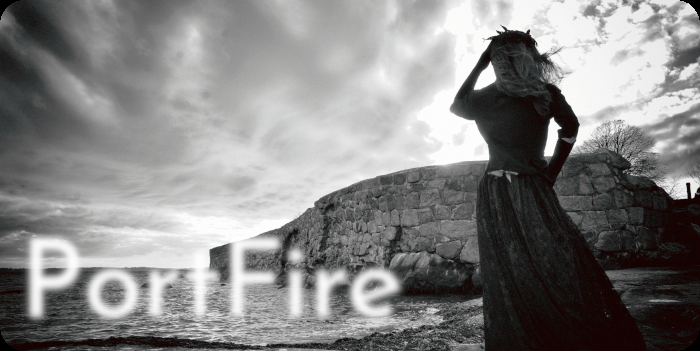I can’t write a memoir, as I’ve explained, because I have a bad memory, a deep sense of shame, and a desire to keep some remnants of privacy in a world of constant surveillance. There are other reasons. For example, my lack of journals. Many famous memoir writers rely on journaling, and they often mention the importance of it in interviews about their work. Journals allow memoir writers to factcheck themselves, so they can stay within the boundaries of nonfiction. No one wants to be the next James Frey.
From my twenties to my forties, I kept journals. This meant I also lugged heavy boxes full of memories good and bad from Massachusetts to Texas to California back to Texas back to Massachusetts and then up to Maine down to Virginia and finally to New York, from apartment to apartment to storage unit to apartment etc. I moved so many times that I still have anxiety dreams about packing. I never read my old journals but I thought it was important to keep them, for the future, because that is what writers do, and I was trying to be a writer.
Eventually, I got tired of the bother and the weight of my journals. I didn’t want to just throw them in a dumpster so I decided to burn them. My ex J. suggested the fire pit at her father’s house in the country, and we drove up there from the city, for one last time of moving those heavy boxes. We built the fire, and I had a wonderful time throwing journal after journal, reminders of my past, into the flames. It was cathartic as hell. I felt unburdened. I regret it from time to time, but I haven’t kept a journal since.
***
The main reason I went to Portsmouth, Virginia last summer was a family reunion. The reunion was with people I’m distantly related to, through my father and Nova Jenerette Stephens. These cousins are Black and I am white, but we have a common ancestor, Gabriel Jacobs. I’ve written about Gabriel here before.
I’ve been in correspondence for several years now with my cousins Tyrone and Luke, who’ve helped me piece together parts of our family history that long puzzled me, for example: are we really a little Cherokee? (Spoiler, we are not. But we are connected through kinship with the Lumbee, Waccamaw, and other coastal Carolina tribes.) Tyrone encouraged me to come to the reunion, so we could finally meet in person.
While meeting Tyrone and at least a hundred of my distant cousins of color in person for the first time, what struck me most was their kindness. It was a crowded party, but people tended to their elders and disabled. They played with their children. They were loving towards one another, and to me, and they meant it. There were all shades of skin there. Our interconnected families have been mixed for generations, from way back to precolonial days in Virginia and North Carolina: white, African, and Native.
Not for the first time, I wished my Jacobs hadn’t moved across the color line, to pass as white. That move cut descendants like me off from deep roots. Only after decades of research did I find out I had Black ancestors who fought in the Revolution. And I still have so many questions: What did becoming white cost us? What if that division and denial didn’t happen? Could we have been a happier family, a more decent and gentle one? The type of family that stays in touch and has regular reunions?
***
A few months before I went to Portsmouth for the family reunion, I wrote a letter, with Luke and Tyrone, to Dr. Henry Louis Gates Jr., for his show Finding Your Roots. The show had posted an open call for proposals, and I thought perhaps my father’s fame and our family story might get Dr. Gates’ attention. I hoped he could help us solve some mysteries about Gabriel’s life with the show’s access to elite academic experts and powerful genealogy resources.
Dear Dr. Gates,
My father is Ben “Cooter” Jones, infamous Dukes of Hazzard actor, former Congressman from Georgia, and one of the loudest NeoConfederate voices in America. We are estranged. I love my father, but I am horrified that he promotes the Lost Cause.
My father and his wife are no doubt the top retailers of Confederate flags in the United States, perhaps even the world. They use his infamy to promote that flag as a “symbol of family, courage, and good times” (his words, right after the Charleston massacre) and they have made a small fortune by selling it and other Rebel souvenirs through a chain of stores called Cooter’s (locations in Tennessee and Virginia).
I hold my father and his wife partially responsible for the Unite the Right riot at Charlottesville. They deny any connection. But they held a festival just a month before, about an hour’s drive north, at their Sperryville store. The Virginia Flaggers and other NeoConfederate groups were there, networking and buying flags.
My father told me that his mother, who had thick black hair and dark eyes, was part Native American. We went on many road trips to Cherokee, North Carolina where he taught me about the Trail of Tears. He also passed down family legends about our connections to the Lost Colony, although he was vague on details.
Curious, I did some research of my own. My most extraordinary discovery was our connection to Gabriel Jacobs, an enslaved African man freed during the late 1600s in colonial Virginia. His story led me to reading about Free People of Color, and the harsh laws used to limit their freedom in antebellum America. I also found records that show numerous Jacobs in Coharie, Lumbee, Saponi, Waccamaw, and other tribes in North Carolina.
Luckily, I connected with a few Jacobs cousins, who identify as Black. They told me that my grandfather Noah Jacobs began passing as white before the Civil War. The “white” Jacobs perhaps severed their connection to Jacobs who identified as Black or Native. Our fairly recent family identity as “white” and my multiracial DNA results back this theory up.
I shared my research with my father, hoping he would think about what our Black ancestors’ lives were like and what the Confederate Flag meant to them. Instead, he now claims that his NeoConfederate beliefs can’t be racist, because he has Black ancestors! My father doesn’t or won’t understand the implications of our multiracial history. He will never listen to me. But an episode about Gabriel Jacobs on Finding Your Roots could challenge his narrative and give him some information hidden by previous generations of Jacobs and Joneses.
My cousins Luke and Tyrone, who have together traced the Jacobs family back to Angola, would also love to work with you and your team to tell our story.
Finding Your Roots rejected our proposal with a form letter, wishing us the very best of luck on our genealogy search in the future. I had fooled myself into thinking we had a good chance, so I was disappointed by the rejection. Tyrone and Luke were not. Tyrone told me, “what’s important is that you know about us.”
I’d imagined that we could make an episode like the one with Roseanne Cash. But my cousins gently reminded me that Dr. Gates was able to have a great conversation with Roseanne Cash because she isn’t a NeoConfederate with a political agenda. There is a connection between right wing extremism and Dukes of Hazzard fandom, and Dr. Gates’ production team may have wanted to keep him far away from all that mess. I don’t blame them.


Reader Comments
I did not know that myself. I did trace the Jacobs family. I’ll go back and look at them again.
Annie Jean Jacobs was the daughter of Noah Jacobs. I believe that Noah’s father was Hezekiah or Ezekiah (spelling varies) who descended from Gabriel. There are many Jacobs all across North Carolina who are a mixed people, Anglo, African, Native.
Gabriel was from Angola/the Congo. I have trace DNA from Angola/the Congo.